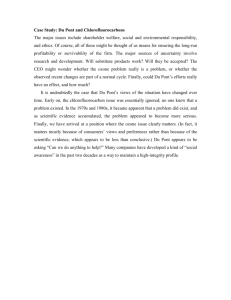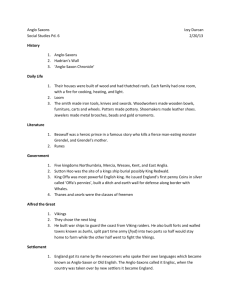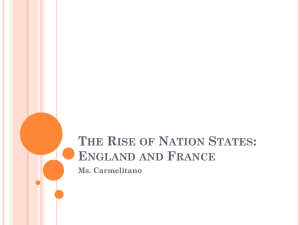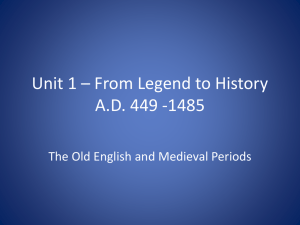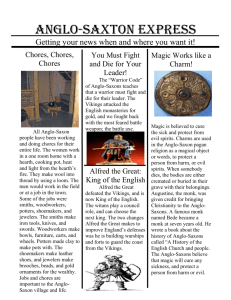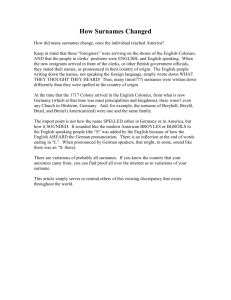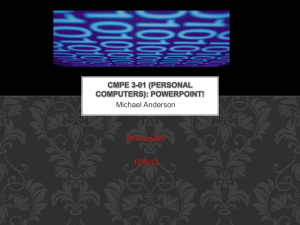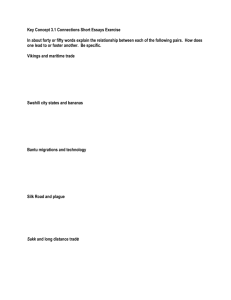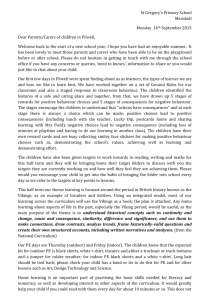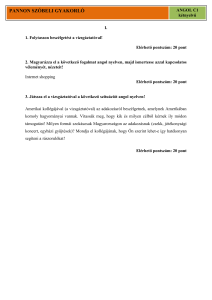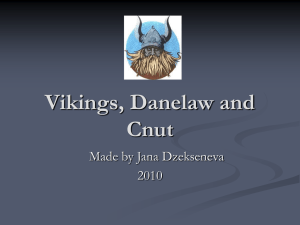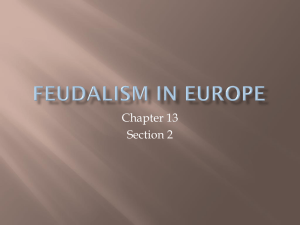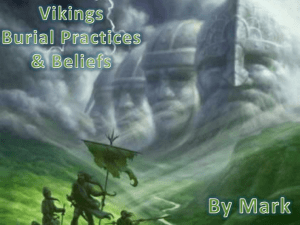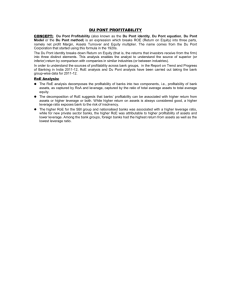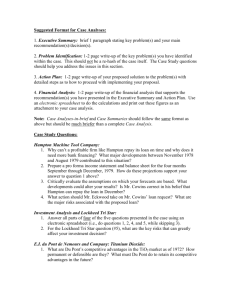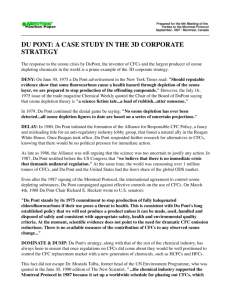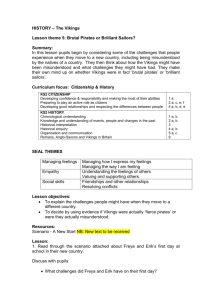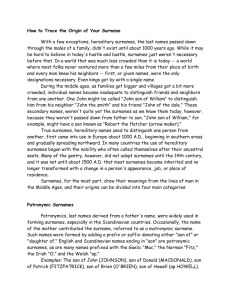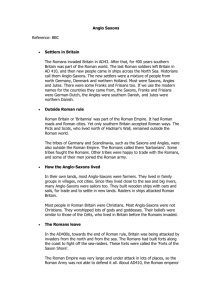Letöltés
advertisement
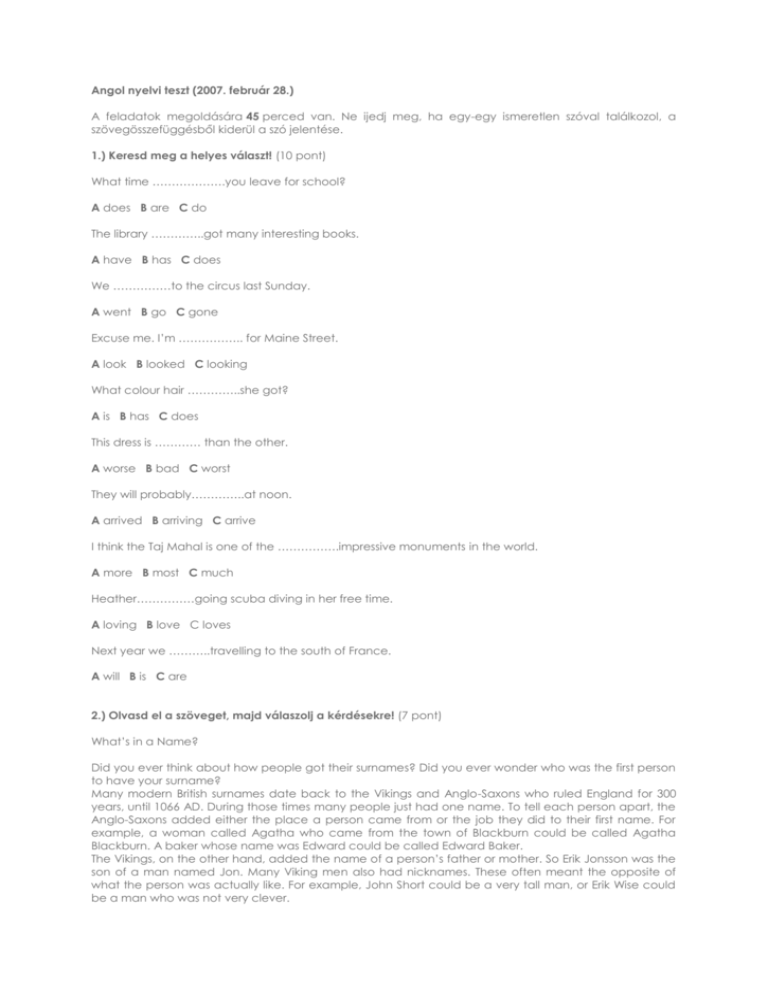
Angol nyelvi teszt (2007. február 28.) A feladatok megoldására 45 perced van. Ne ijedj meg, ha egy-egy ismeretlen szóval találkozol, a szövegösszefüggésből kiderül a szó jelentése. 1.) Keresd meg a helyes választ! (10 pont) What time ……………….you leave for school? A does B are C do The library …………..got many interesting books. A have B has C does We ……………to the circus last Sunday. A went B go C gone Excuse me. I’m …………….. for Maine Street. A look B looked C looking What colour hair …………..she got? A is B has C does This dress is ………… than the other. A worse B bad C worst They will probably…………..at noon. A arrived B arriving C arrive I think the Taj Mahal is one of the …………….impressive monuments in the world. A more B most C much Heather……………going scuba diving in her free time. A loving B love C loves Next year we ………..travelling to the south of France. A will B is C are 2.) Olvasd el a szöveget, majd válaszolj a kérdésekre! (7 pont) What’s in a Name? Did you ever think about how people got their surnames? Did you ever wonder who was the first person to have your surname? Many modern British surnames date back to the Vikings and Anglo-Saxons who ruled England for 300 years, until 1066 AD. During those times many people just had one name. To tell each person apart, the Anglo-Saxons added either the place a person came from or the job they did to their first name. For example, a woman called Agatha who came from the town of Blackburn could be called Agatha Blackburn. A baker whose name was Edward could be called Edward Baker. The Vikings, on the other hand, added the name of a person’s father or mother. So Erik Jonsson was the son of a man named Jon. Many Viking men also had nicknames. These often meant the opposite of what the person was actually like. For example, John Short could be a very tall man, or Erik Wise could be a man who was not very clever. So, next time someone tells you their surname, stop and think for a minute. It might tell you something about the ancestors from centuries ago. How long did the Vikings and Anglo-Saxons rule England? (1) How did the Anglo-Saxons tell people apart if they had the same first name?(2) According to the text, what would the Vikings call a man named Karl whose father was called Erik? (2) How did the Vikings use adjectives in their surnames? (2) 3.) Írd be az üres helyekre az odaillő melléknevet vagy határozót! (10 pont) Expensive, politely, relieved, early, terrified, awful, quietly, cheerfully, incredibly, young Why do I have to wake up so …………? We were all very …………… when the plane landed safely. He sat ………….. at his desk and finished his homework. Why did you buy such a(an) …………………rucksack? I told you to use mine. He speaks Spanish …………………..well. When Tracey saw her son walk towards the cliff, she was ………………… he would fall. ’Can I use your telephone, please,’ she asked ……………………. . The weather was …………………….. . It rained for days. When my grandmother was ……………… she wanted to be an opera singer. They clapped …………….. when their team won the match. 4.) Tegyél fel kérdéseket a vastag betűs mondatrészekre! (8 pont) She booked the church two months ago. She has ordered the cake. The florist will deliver the flowers on Saturday morning. The hairdresser will style her hair at home. 5.) Írj egy körülbelül 100-120 szavas levelet, amelyben egyik barátod kérdéseire válaszolsz. (15 pont) A következő idézet angol barátod leveléből való. Válaszolj a kérdéseire, a levélben legyen megszólítás, bevezetés, tárgyalás és befejezés. Dátumot és címet nem kell írnod. My family and I have just moved to Cambridge. It’s green, very peaceful and I like it a lot. What is the city you live in like? Do you enjoy living there?
